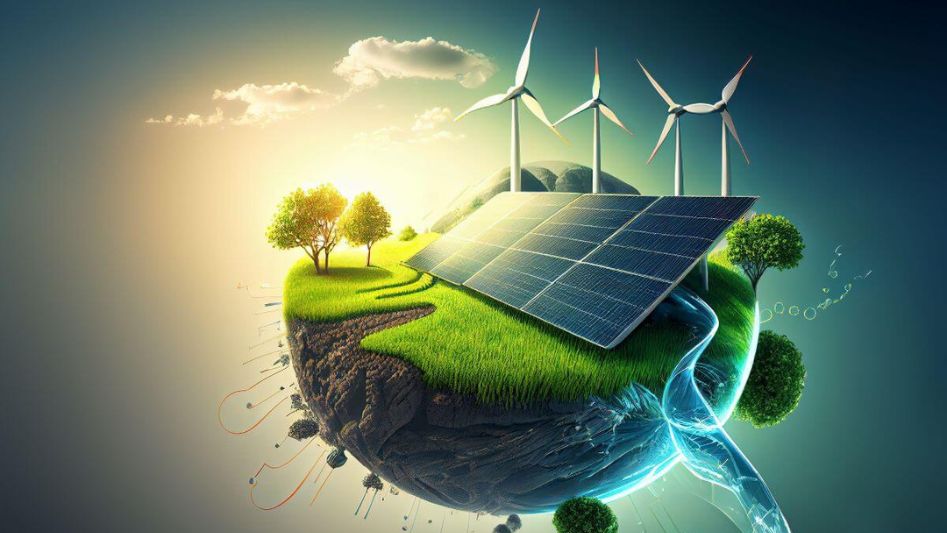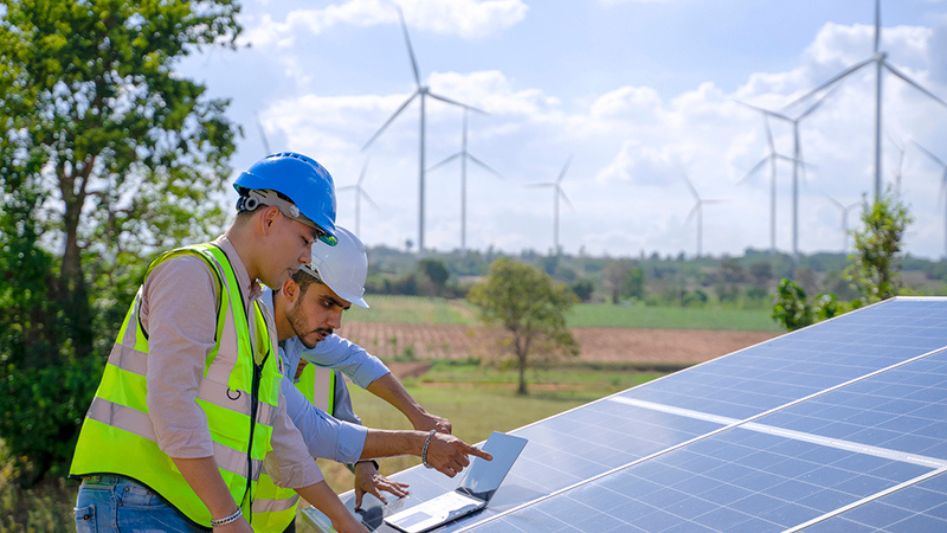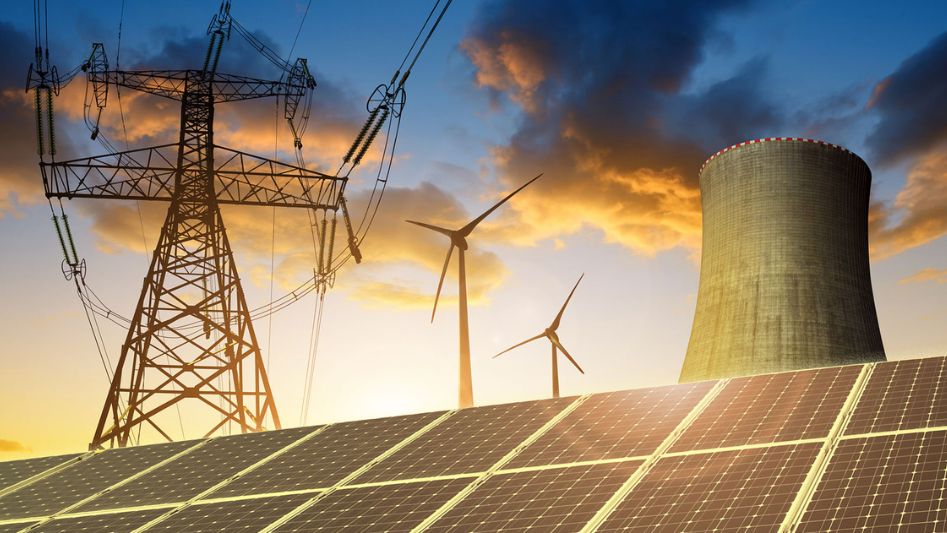In today’s rapidly evolving world, the significance of renewable energy cannot be overstated. As the adverse impacts of climate change become more apparent, the urgent need to transition to sustainable energy sources becomes paramount. At the heart of this transformation lies the goal of empowering communities with clean power, ensuring a greener and brighter future for generations to come.
Table of Contents

The Imperative of Renewable Energy
Traditional energy sources, such as fossil fuels, have been the backbone of global energy supply for centuries. However, their finite nature and harmful emissions have led to severe environmental consequences. This has prompted a paradigm shift towards renewable energy, which relies on sources like sunlight, wind, water, and biomass, all of which are abundant and eco-friendly.
Advantages of Renewable Energy
Environmental Sustainability
The use of renewable energy significantly reduces greenhouse gas emissions, mitigating the impact of climate change and fostering a healthier environment. By harnessing the power of natural resources, communities can play a pivotal role in preserving the planet for future generations.
Energy Independence
Adopting renewable energy enables communities to become less reliant on imported fossil fuels, promoting energy independence and security. With localized energy generation, communities gain greater control over their power supply and economic resilience.
Cost-Effectiveness
While the initial investment in renewable energy infrastructure may be higher, the long-term cost benefits are substantial. Renewable energy systems generally have lower operational and maintenance expenses, leading to considerable savings over time.
Job Creation and Economic Growth
Embracing clean energy technologies creates a host of job opportunities across various sectors, including manufacturing, installation, research, and maintenance. This boost in employment contributes to local economic growth and prosperity.
Technological Advancements
The pursuit of renewable energy solutions drives innovation and technological advancements. As these technologies improve, they become more efficient, accessible, and affordable for communities around the world.

Empowering Communities through Renewable Energy
1. Solar Power Initiatives
Solar power stands as one of the most accessible and widely adopted renewable energy sources. Harnessing the sun’s rays through solar panels allows communities to generate electricity for various applications. By leveraging abundant sunlight, even remote and off-grid communities can benefit from reliable and clean power sources.
2. Wind Energy Solutions
Wind energy presents another formidable option for communities seeking renewable power. Wind turbines capture the kinetic energy of the wind and convert it into electricity. Wind farms, whether onshore or offshore, offer immense potential for generating significant amounts of clean energy to power entire communities.
3. Hydropower Systems
Communities with access to flowing water bodies can tap into the potential of hydropower. By utilizing the force of moving water, hydropower plants generate electricity without harmful emissions. Careful planning and environmental considerations ensure the sustainable use of water resources.
4. Biomass Solutions
Biomass energy utilizes organic materials like agricultural residues, forest waste, and biodegradable municipal waste to produce energy. This renewable energy source not only reduces waste but also provides a reliable and sustainable energy option for communities.
Collaboration and Community Engagement
Realizing the vision of renewable energy for all necessitates collaboration between various stakeholders. Community engagement is paramount, as it ensures that energy solutions are tailored to meet the specific needs and aspirations of each locality. By involving residents, businesses, and local leaders, we create a shared sense of ownership and responsibility for a sustainable energy future.
Investment in Research and Development
To remain at the forefront of renewable energy advancements, continuous investment in research and development is vital. By supporting innovative technologies and sustainable practices, we can drive the evolution of renewable energy solutions. Advancements in energy storage, grid integration, and smart technologies further enhance the reliability and efficiency of clean power systems.

Conclusion
Renewable energy is not just a fleeting trend; it is the foundation for a sustainable future. By empowering communities with clean power, we can collectively combat climate change, reduce reliance on finite resources, and foster economic prosperity. The journey towards a renewable-powered world begins with unified efforts, technological innovation, and the unwavering commitment to create a better tomorrow.
FAQs
What is renewable energy?
Renewable energy refers to energy derived from natural resources that are continually replenished, such as sunlight, wind, water, and biomass. Unlike fossil fuels, these sources do not deplete over time and have a significantly lower environmental impact.
Why is renewable energy important?
Renewable energy is crucial for several reasons. It helps combat climate change by reducing greenhouse gas emissions, promotes energy independence, and fosters economic growth through job creation.
Is renewable energy expensive?
While the initial investment in renewable energy infrastructure can be higher, the long-term cost benefits are substantial. Renewable energy systems have lower operational and maintenance costs, resulting in cost-effectiveness over time.
How can I transition to renewable energy?
Transitioning to renewable energy can be accomplished by:
- Installing solar panels on rooftops or open spaces.
- Exploring wind energy options, especially in areas with consistent wind patterns.
- Utilizing local water resources for hydropower generation.
- Exploring biomass solutions for waste-to-energy conversion.
You May Also Like
- MUMBAI DATA CENTER CHOOSES PDG FOR 25-YEAR RENEWABLE ENERGY SOLUTION
- FLOATING HYDROGEN FARM: CHINA’S MILESTONE IN SHIFTING TOWARDS RENEWABLE ENERGY
- FROM POLLUTION TO POWER: HOW RENEWABLE ENERGY CAN TRANSFORM OUR WORLD
- CLEAN ENERGY, CLEAN WORLD: HOW RENEWABLE ENERGY CAN SAVE THE PLANET
- POLLUTION SOLUTIONS: HOW RENEWABLE ENERGY CAN HELP
